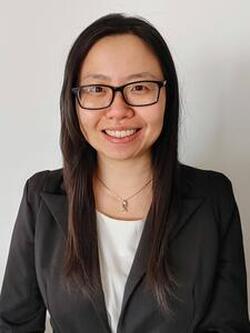The Queen's Partnerships and Innovation (QPI) team develops and facilitates partnerships with industry, governments, not-for-profit organizations, and other academic institutions to advance the research enterprise at Queen’s and the commercialization and protection of inventions, and to strengthen the regional innovation ecosystem in Kingston and Eastern Ontario.
The QPI team supports the University’s strategic goal to build community partnerships and fully embed Queen’s in the community. With support from external funding, the QPI team offers numerous services, resources, and programs to support entrepreneurs, including those from Queen’s, and to accelerate the growth of startups and small- to medium-sized enterprises (SMEs) within Kingston and Eastern Ontario.
More than 100,000 Canadians live with Parkinson’s and 25 more are diagnosed every day. A diagnosis for Parkinson’s, a neurodegenerative disease, may take months, or even years, of searching for answers to seemingly unexplainable symptoms (Parkinson’s Canada).

A newly formed company in Kingston is using Queen’s University’s researcher Doug Munoz’s innovative solution to make a diagnosis of neurodegenerative diseases like Parkinson’s more quickly and accurately. Dynamiris is developing a fast, objective, and low-cost tool that clinicians can implement right in their office to flag patients earlier for further testing, which can then lead to earlier treatment and better outcomes for patients.
Queen’s Partnerships and Innovation (QPI) drafted and filed a first patent application in 1999 for Professor Munoz, for which a United States patent was granted in 2001. Since that time, Dr. Munoz and his research team have continued to develop more intellectual property, and QPI drafted, filed, and prosecuted a second patent application for which another United States patent was granted in 2014. In 2022, QPI drafted and filed an international patent application under the Patent Cooperation Treaty (PCT) for Dr. Munoz’s eye tracking technology for detecting brain disorders.
Dr. Munoz credits the shut-down of the pandemic with how quickly they were able to accelerate aspects of the eye tracking technology.
“With everything shut down and everyone at home, it gave us time to build new analysis pipelines and analyze data to find critical data markers,” says Dr. Munoz. “From the data we have collected from patients and animal subjects, we have been able to get important behavioural information from eye-tracking, which has in turn helped to create an algorithm for identifying diseases. I’m not sure we would have been here as fast if not for the extra time to analyze the data.”
“We saw the market potential for the research that Dr. Munoz was working on,” says Michael Wells, Partnerships Development Officer (Health and Life Sciences) with QPI. “So, when an opportunity to collaborate with the Toronto Innovation Acceleration Partners came up, we knew that Dr. Munoz’s technology would be a great fit.”
The Toronto Innovation Acceleration Partners (TIAP) is a not-for-profit organization with a mandate to bring members’ most promising research breakthroughs to market. TIAP offers a suite of programs and funding to help inventors advance their innovations. In 2020, TIAP invited Queen’s to join its new Venture Builder Program, an initiative led by TIAP with funding from the Federal Economic Development Agency of Southern Ontario (FDO). This funding, combined with the requisite matching contribution from Queen’s, has enabled QPI to encourage, support, and guide the establishment and launch of three health-care companies to commercialize intellectual property assigned to Queen’s. Dynamiris is one of the startups that is benefitting from QPI’s guidance and networks, and an initial investment made possible by the FDO funding. Dr. Wells leads the TIAP Venture Builder Program at Queen’s.
“Michael Wells has been instrumental in getting us to the starting line. He has shown tremendous patience with the mentoring of getting us to this point,” says Dr. Munoz.
In the short amount of time since incorporating, Dynamiris has seen some early success.

The first step in bringing the technology to market through the Venture Builder Program was for Dr. Munoz to bring on a partner who could work full-time on developing and incorporating the company. Dr. Janis Kan, a Queen’s University neuroscience PhD graduate joined as co-founder of Dynamiris.
In May 2022, Dr. Kan took home the top prize of $5,000 (sponsored by SFU Innovates and supported by Queen’s Faculty of Engineering and Applied Science) at the Mitacs Invention to Innovation (i2i) Skills Training Final Pitch Competition. Dynamiris has also been busy making connections through QPI. A recent participant in the Wings Acceleration program, that spanned the late spring and early summer, Dr. Kan credits the program with helping her better understand and identify differentiators, and how to apply them to the business.
Wings is aimed at startups in the early, pre-revenue, stages of development. The Wings facilitators give startup founders the tools and guidance they need to evaluate the feasibility of their business idea, determine what they really have to offer customers, and begin developing a working business model.
“The program helped reiterate the importance of doing customer interviews, how to ask appropriate questions, and gave me ideas on how to reach out to customers,” adds Dr. Kan.
Dr. Kan has also tapped into the resources made available through other QPI projects and initiatives, including QPI’s Go-to-Market programs and services, and the WE-CAN Project at Queen’s University. The Konnect program, offered by the Dunin-Deshpande Queen’s Innovation Centre as part of the WE-CAN Project, provided Dr. Kan with an additional network, support system, and personal and professional development opportunities.
As for next steps, Dynamiris is continuing to develop the technology and tools through which to deliver their eye tracking protocols. They plan to recruit more patients – as the more data they have, the more accurate the algorithm becomes – and they continue to set up the company with the aim of fully commercializing the product.
“Ideally we can create a fully automated process,” says Dr. Kan. “If we can build the program prototype and get it into doctors’ offices, we can hopefully deliver same day results. It could be a game-changer for patient diagnoses.”
“Dynamiris is a great example of how all of our ecosystem projects that receive support from FedDev Ontario – the Scale-Up Platform, HI YGK, WE-CAN, and Venture Builder – work together synergistically to help build and grow a company,” says Janice Mady, Director, Research and Innovation Partnerships with QPI. “From formation, incorporation, and the assembly of co-founders and a support structure using Venture Builder resources, to customer discovery and market validation using Scale-Up resources, to mentorship and Go-to-Market support through HI-YGK, and networking through WE-CAN, Dynamiris has been able to tap into numerous complementary supports, providing it with a strong foundation for growth.”
Queen’s Partnerships and Innovation is involved as the lead or partner in several projects enabled with support from the Federal Economic Development Agency for Southern Ontario (FedDev Ontario). Wings is offered through the Scale-Up Platform, an initiative supported by FedDev Ontario and led by Invest Ottawa in Eastern Ontario and in which QPI is a regional partner. The WE-CAN Project, led by QPI, has been made possible with funding from the Women Entrepreneurship Strategy (WES) Ecosystem Fund to strengthen capacity within the entrepreneurship ecosystem and close gaps in service for women entrepreneurs. The HI YGK Project, supported by FedDev Ontario, is led by the City of Kingston and aims to encourage health-innovation focused startups and SMEs to develop and grow in Kingston. The Venture Builder Program, also supported by FedDev Ontario, is led by TIAP and enables the establishment of up to four healthcare newcos that are commercializing intellectual property from Queen’s research.
 About Vice-Principal Research
About Vice-Principal Research